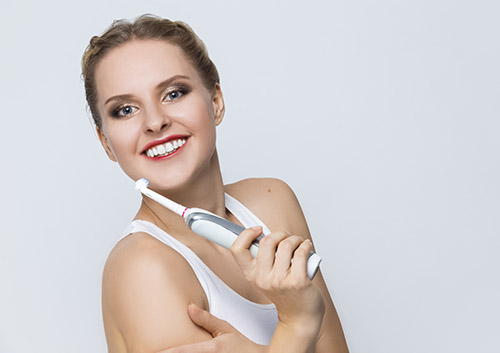Clean Toothbrush/Healthy Toothbrush
August 16th, 2023

We’ve all learned a lot about keeping healthy lately. Thorough hand washing, disinfecting cell phones and keyboards, wiping down shopping carts and door handles—all these low-maintenance cleaning habits can have a high impact on our health.
So, in that spirit, let’s talk about low maintenance cleaning routines for something you put in your mouth at least twice a day—your toothbrush.
Brushing Habits
Don’t let germs hitch a ride on your toothbrush before you even begin! Make sure your hands are clean before brushing, and rinse off your toothbrush before you put it in your mouth.
After brushing, be sure to rinse your brush carefully to get rid of leftover toothpaste, food particles, and other debris. And don’t forget to clean your toothbrush holder regularly. Talk to Dr. Carl Meyers or your hygienist when you visit our West Bend, WI office for suggestions for deep cleaning brushes to eliminate bacteria if that’s a concern.
And while we’re talking about germs, how about…
- Flushing Habits
Most toothbrushes share their living space with another bathroom essential—the toilet. Every time we flush, microscopic particles are propelled through the air. And while no definitive relationship has been shown between flushing and disease transmission, closing the toilet lid before flushing is an easy way to reduce unpleasant particle transmission—and reduce the possible risk of toothbrush contamination.
- Airing? Yes!
Keeping a toothbrush in a dark, moist environment is the perfect setting for bacterial growth. Instead, let your toothbrush air dry after use in an upright position. Give it a shake first for a head start on the drying process.
- Sharing? No
We’re not talking about sharing a brush, which you would never do. We’re talking about sharing toothbrush holders. If your brush touches other brushes, you’re probably sharing germs as well as space, which can be especially problematic if someone in the house has immune concerns. Toothbrushes shouldn’t be too close to other toothbrushes, no matter how close you are to the other brush’s owner!
Finally, no matter how well you take care of your toothbrush, there comes a time when you must part with even the cleanest and best-maintained of brushes. After three or four months, bristles become frayed. This means you’re not getting the most effective plaque-removal from your brush. And to be on the safe side, consider retiring your toothbrush if you’ve been ill.
Dental self-care is a vital part of keeping yourself healthy, and a clean toothbrush is a simple way to support your oral health. High impact/low maintenance—win/win.






